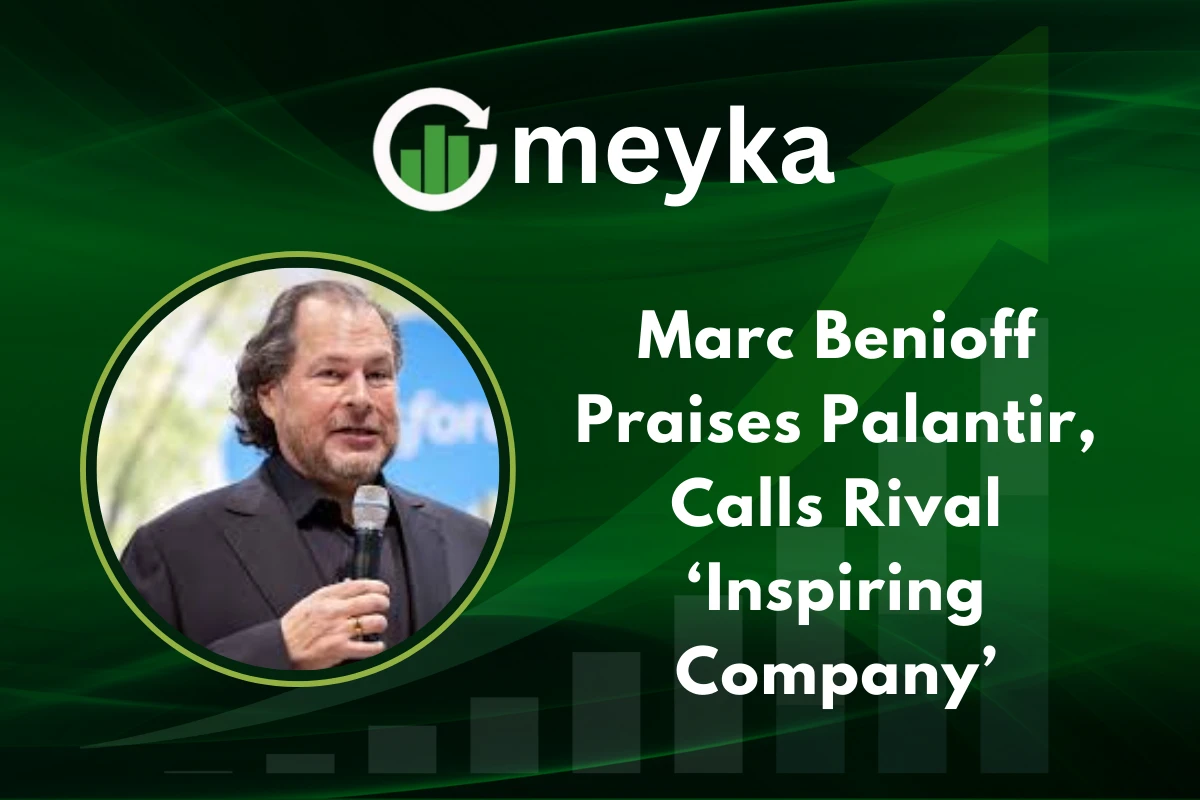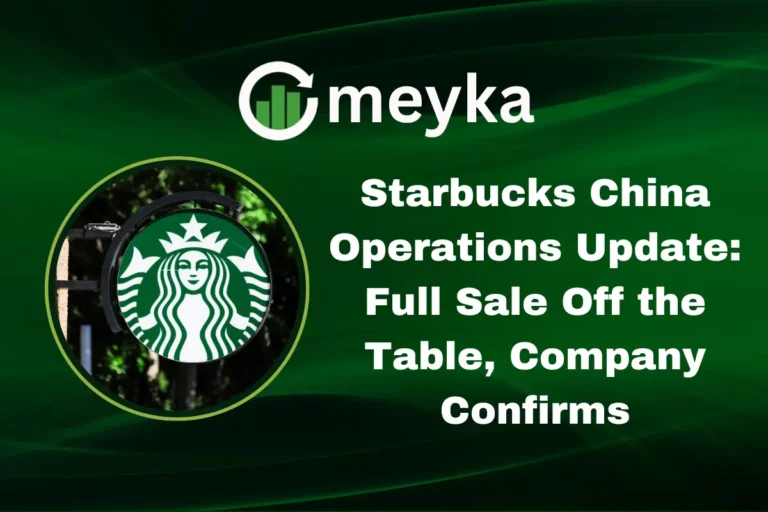Marc Benioff Praises Palantir, Calls Rival ‘Inspiring Company’
Marc Benioff, the outspoken CEO of Salesforce, surprised parts of the tech world by publicly praising Palantir, calling elements of the company “very cool” and describing its commercial approach as inspiring. His comments, focused on Palantir’s hands-on deployment model and premium pricing, matter because they come from a direct competitor who is also racing to lead in enterprise AI.
Why would a rival heap praise on Palantir? The answer lies in Palantir’s unusual customer engagement model, its valuation, and the tough choices leaders make when competing at the top of the enterprise AI market.
Marc Benioff Praises Palantir: What he actually said
In a recent interview and follow-up commentary, Benioff complimented Palantir’s forward-deployed engineer model, calling it very cool, and said he was struck by the company’s premium pricing strategy. He pointed out that Palantir’s market valuation and its revenue guidance prompted him to relook at pricing approaches at Salesforce.
That kind of public admiration from a competitor underlines how commercial model innovation can be as important as technology in enterprise software markets.
Why does pricing get so much attention? Because in enterprise software, the way a company charges customers shapes margins, sales motions, and long-term strategic options.
Palantir’s AI deployment model and premium pricing
Palantir (PLTR) has become known for embedding engineers with customers early in the sales and deployment cycle, a model that helps tailor complex AI systems to mission-critical needs.
That forward-deployed engineer approach reduces integration risk and builds deep customer reliance. Coupled with a premium pricing strategy, it creates strong vendor lock-in for clients willing to pay for guaranteed outcomes and close support.
Benioff’s remarks emphasise how these non-technical choices can translate into outsized commercial results, even when revenue bases are smaller than those of larger rivals.
Salesforce versus Palantir: how the rivalry has evolved
The relationship between Salesforce and Palantir mixes direct competition with professional admiration. Both firms compete for large enterprise and government contracts, yet they have distinct go-to-market models.
Salesforce emphasises broad platform scale and lower price points, while Palantir focuses on bespoke deployments and high-touch support. Benioff’s comments suggest he sees lessons in Palantir’s model that could influence Salesforce’s strategy, especially around pricing and specialised implementations.
Why would a competitor praise Palantir so openly? Competitive respect often follows when a rival proves a repeatable, profitable approach in demanding enterprise environments.
Why Palantir is viewed as an “inspiring company”
There are three reasons leaders like Benioff single out Palantir.
First, its business model shows how deep technical engagement with clients can create durable revenues.
Second, Palantir has achieved a high valuation relative to its revenue base, which raises questions about how the market prizes strategic positioning over scale.
Third, its focus on mission-critical AI deployments sets a benchmark for what enterprise AI can command in price and terms. Benioff’s admiration, therefore, reflects both tactical curiosity and strategic recalibration.
Market reactions, insider moves, and investor context
Notably, the same reporting period saw Benioff exercise options and sell a modest block of Salesforce shares, a move corporate filings and market reports captured. Finviz reported Benioff sold shares worth approximately $564,422 while exercising options for 2,250 shares, though he remains a major shareholder in Salesforce.
That mix of public praise for Palantir with routine portfolio actions underscores how corporate leaders balance strategic commentary and personal financial moves in the public eye. Investors monitor both the substance of competitive praise and any insider transactions for hints about sentiment and strategy.
Does praise from a rival change investor views on Palantir? It can. Endorsements from respected peers often nudge analysts to reexamine questions of product defensibility and pricing power.
Palantir’s pricing and valuation puzzle
Benioff flagged the gulf between Palantir’s market valuation and its revenue guidance, noting the company’s ability to command premium rates even with a smaller revenue base compared with larger cloud incumbents.
This raises typical market questions: is Palantir’s valuation a premium for growth and unique contracts, or does it price in an optimistic scaling of margins and deployments?
Corporate leaders watching Palantir’s model may be tempted to adapt selective pricing tactics, but translating niche, high-touch practices to broader enterprise offerings is difficult and risky.
The growing enterprise AI market and competition
The wider market for enterprise AI is expanding rapidly, drawing in vendors with varied models: broad platforms, niche specialists, services-heavy integrators, and AI native shops. Palantir’s success with bespoke, high-value deals shows a route focused on depth rather than breadth.
Salesforce, with its massive installed base and platform play, competes on distribution and scale. Benioff’s praise underscores how both approaches can be valid, and how CEOs study rivals to refine their own playbooks when the stakes are high.
What does this mean for customers? They may see more tailored pricing options or new offerings that blend platform scale with dedicated engineering support.
Social media and expert reactions
Industry commentators picked up Benioff’s praise, with analysts noting the strategic significance of public kudos between competitors. Some saw it as a tactical nudge toward pricing experimentation at Salesforce, others as a signal that enterprise AI winners may not look alike.
The conversation highlights the important interplay between product design, sales models and financial markets in shaping winners in AI.
Conclusion: what Benioff’s praise means for Palantir and the sector
Marc Benioff calling Palantir inspiring is more than a soundbite. It is a recognition that in enterprise AI, commercial models and customer intimacy matter as much as algorithmic prowess.
For Palantir, the moment reinforces credibility; for Salesforce, it offers a prompt to revisit pricing and engagement strategy, and for the market, it highlights diversity in winning approaches.
Moving forward, expect leaders to borrow selectively from rivals and to experiment with blended models that aim to combine scale with bespoke outcomes. That is the practical lesson behind a competitor’s compliment.
FAQ’S
Marc Benioff praised Palantir for its forward-deployed engineer model and premium pricing, calling it an inspiring strategy in enterprise AI.
Palantir focuses on bespoke AI deployments and premium contracts, while Salesforce competes through scale, platforms, and broader distribution.
Analysts believe Palantir’s high-touch model justifies premium pricing, but scaling it globally remains a challenge compared to SaaS rivals.
Palantir has gained strong traction in government and commercial contracts, positioning itself as a leader in mission-critical enterprise AI solutions.
It boosts investor confidence, as endorsement from a major competitor signals Palantir’s strategy is respected within the tech industry.
Disclaimer
This content is made for learning only. It is not meant to give financial advice. Always check the facts yourself. Financial decisions need detailed research.






